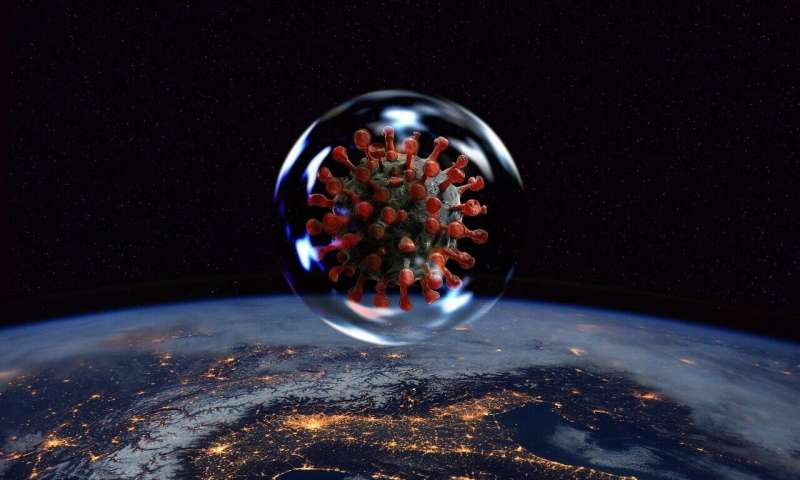Home » Health News »
What is ‘medium COVID’ and is it really a thing? Health experts aren’t convinced.

After two years of living with COVID-19, health experts have learned the disease can come in many forms. People can experience mild COVID-19, asymptomatic COVID-19 or long COVID-19.
Lately, a new term, “medium COVID-19,” has gotten some traction among people whose symptoms last longer than normal, but not long enough to identify as “long haulers.”
Heath experts say it’s normal for people to want a diagnosis for how they feel, but “medium COVID-19” is not a distinct condition. Rather, it’s part of post-sequelae of COVID-19, commonly referred to as long COVID-19, which encompasses a spectrum of timelines and symptoms.
“There’s variability from person to person in terms of how (COVID-19) manifests itself,” said Dr. Noah Greenspan, a specialist in cardiovascular physical therapy who has been treating those suffering from long COVID-19 since the start of the pandemic. “That need to classify and the need to put things in a nice, neat little box is not really viable when it comes to COVID.”
“Medium COVID-19” was popularized by an NPR broadcast last month from a reporter who recounted her experiences with the disease. She was young and healthy, but an encounter with the omicron variant left her feeling extremely weak and fatigued weeks after testing negative for the virus.
Although she eventually recovered, experts say she experienced a form of long COVID-19, rather than a unique condition.
The Centers for Disease Control and Prevention define “long COVID-19” as a range of new, returning or ongoing health problems four or more weeks after first being infected with the coronavirus.
The World Health Organization defines the condition as occurring within three months from infection with symptoms lasting for at least two months.
“This is what makes it so hard as a clinician, because we don’t exactly understand why different people experience different symptoms,” said Dr. Jai Marathe, an infectious disease physician and founding director of the Long COVID Clinic at Boston Medical Center. “The medical community is learning at the same time as the patient about why it happens and why some people are mild while others might have severe symptoms.”
Symptoms of long COVID-19 range from shortness of breath and difficulty concentrating to sleep problems and joint or muscle pain, according to the CDC. People may also experience fever, dizziness, change in smell or taste or mood changes.
While health experts are beginning to narrow down some common symptoms, new ones continue to emerge and the causes behind them remain elusive.
“It can be that the virus is still around, it can be that you’re making antibodies, or it can be something we don’t understand,” said Dr. Fernando Carnavali, chief for general internal medicine and coordinator of Mount Sinai’s Center for Post-COVID Care. “We’re in the infancy of defining all the aspects related to post-COVID.”
People worry long COVID-19 means feeling sick forever, health experts say, but it is not unusual for symptoms to linger. Since the start of the pandemic, experts say there has been a need to classify everything related to COVID-19, and anxiety surrounding the unknown may have contributed to the notion of “medium COVID-19.”
Some may find comfort in using the term, but health experts worry it could downplay the potentially harmful consequences of COVID-19 in young and healthy patients. People don’t know how long symptoms will persist until they recover, Greenspan said.
Getting COVID-19 “is like spinning a wheel. It can be asymptomatic to crippling … who wants to roll that dice?” he said. “People say, ‘Well, I’ve been vaccinated so I’m going to have (medium COVID).’ Maybe you will, maybe you won’t.”
Most long-haul COVID-19 clinics treat only people who’ve had symptoms for at least a month or more, but Greenspan says it’s important to connect with a health care provider.
“It’s worth checking in with at least your primary care doctor to have a baseline physical exam to see where you are at that moment so that if things don’t resolve, we can look and hopefully catch things in their earlier stages,” he said.
Source: Read Full Article


